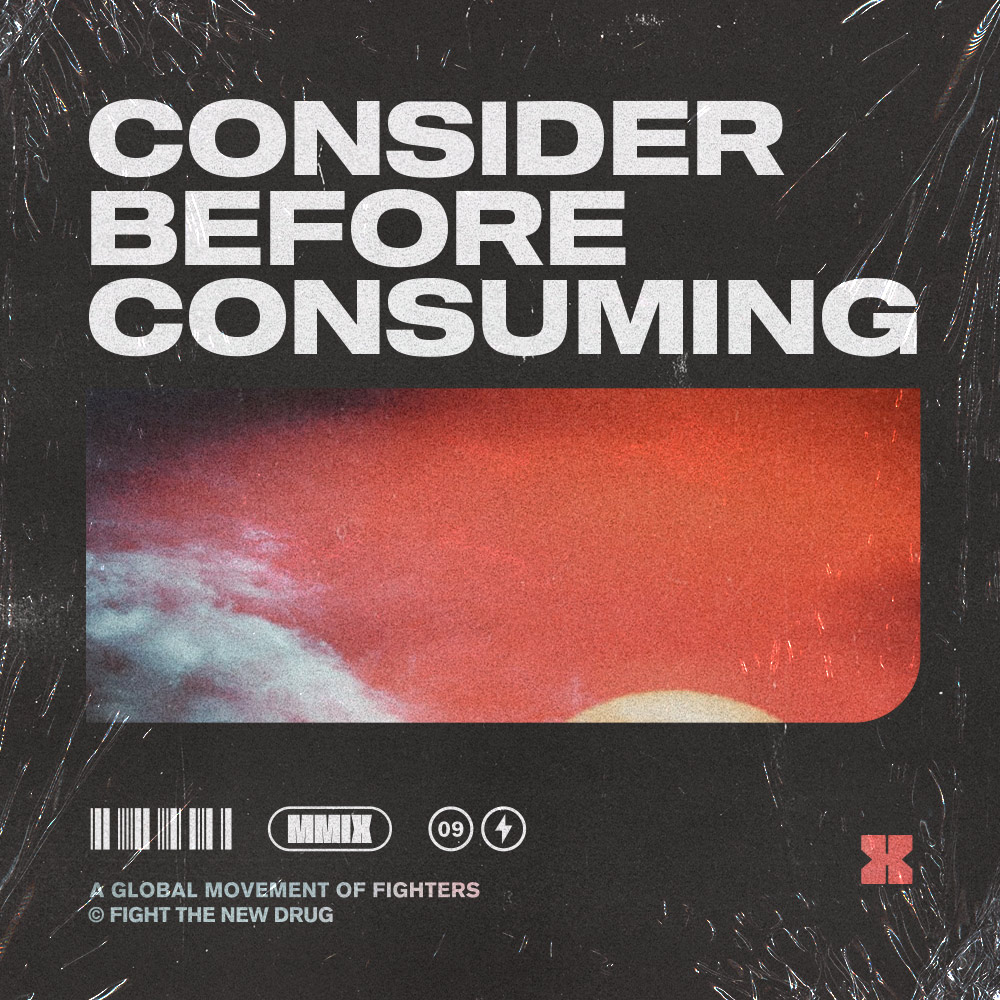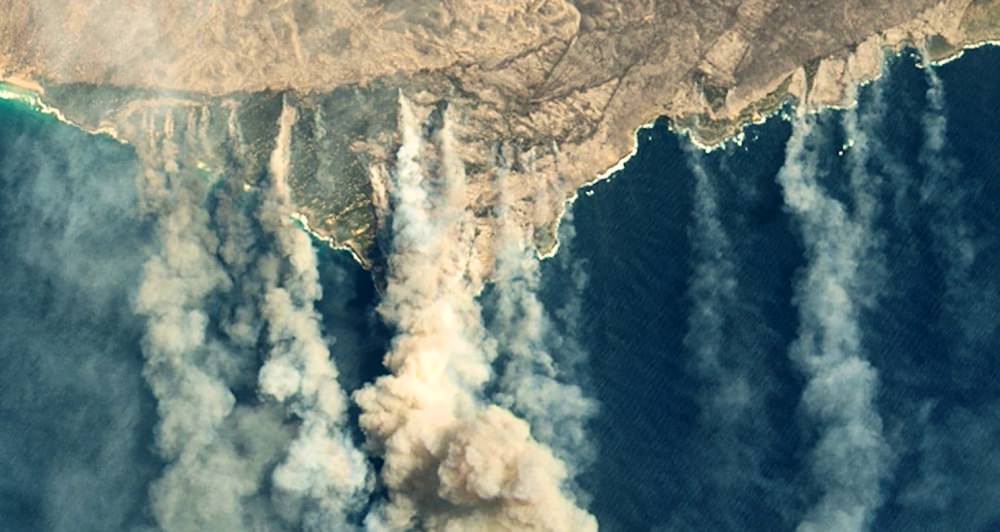Burned land and thick smoke over Kangaroo Island, Australia, on Jan. 9. (NASA Earth Observatory/EPA-EFE/Shutterstock, retrieved from Washington Post.)
FTND DISCLAIMER: The following is in no way intended to shame or be a takedown of the individuals involved in this issue. As a non-religious and non-legislative organization, it is not our position or intention to take away models’ or performers’ rights to do what they choose.
Australia has been engulfed in flames since September of 2019, and the repercussions are catastrophic. Officials say the seemingly endless series of bushfires—set off by record-breaking temperatures and months of intense drought—could continue to burn for months.
So far, over 3,000 homes have been consumed by the flames and more than 17 million acres of bush, forest, and parks have been destroyed—an area comparable in size to the entire country of England.
Many areas have declared a “state of disaster.” Swarms of people are evacuating their homes to seek shelter, and emergency services have taken over thousands of properties. Some 27 people and over 1 billion animals have lost their lives.
In the area of Vivonne Bay on Kangaroo Island alone—known for its unique diversity of animal species—25,000 koalas have been killed. The fate of surviving animals who have escaped the bushfires still fight for their survival due to loss of habitat or starvation.
Smoke and black carbon spanning thousands of miles from the source of the fires are also major concerns due to their impact on air quality and climate change.
While fire season is always a risk in Australia, what the country is enduring now is unprecedented. The global impact both now and in the years to come is nothing short of devastating.
Relief efforts for Australia—including selling nude images
It’s no surprise that with a disaster of this magnitude, there’s been an immediate global response to help. Many people have contributed to various relief efforts or used their social platforms to fundraise for the cause, including Thor himself, Chris Hemsworth.
Also among those responding are models and porn performers selling their nude photos in exchange for donations to relief efforts.
Related: Data Shows Australian Domestic Violence Crisis Is Fueled By Violent Porn
Model and internet personality Kaylen Ward recently announced her Australia fundraiser on Twitter, inviting people to privately message her proof of donations to verified causes helping Australia in exchange for her explicit photos. Self-dubbed “The Naked Philanthropist,” she claims to have raised more than $1 million so far. Some of her followers even started a petition on Change.org to award her the Nobel Peace Prize for her efforts.
Dozens on Twitter have followed suit, adopting the same nudes-for-donations fundraising model.
Many performers view Twitter as the most nude-content-friendly social platform since it’s policies allow for adult content and nudity as long as it’s “consensually” produced, published, and distributed—although it’s virtually impossible to know if all explicit content on the platform is consensual for sure.
Even still, the participating models and porn performers acknowledge the reality that once a nude photo of them is distributed online—whether as a paid transaction or not—it can wind up anywhere.
Porn performer Skyla Rayne told Business Insider, “Unfortunately it is out of my control, and I choose to just believe that those people who share our nude bodies without our consent are incredibly broken. I can’t personally stop it from happening.”
The broader societal impacts of “nudes-for-donations”
As it turns out, selling nude photos in exchange for donations isn’t a new or even isolated cultural phenomenon in our world.
In fact, this form of fundraising was also used to help with the also devastating Amazon rainforest fires in 2019. It now seems that this trend can be expected as a response when something catastrophic happens.
Related: New Study Details How Porn Harms Australian Millennials
As a non-religious and non-legislative organization, we maintain that it’s the right of these individuals to choose to do what they’re doing and it’s not our goal to restrict or shame them. Even still, it’s also important to take a minute to acknowledge the issues that selling nudes to raise funds for causes normalizes and its larger societal impact.
So what does the normalization and glamorization of selling nude photos for a cause reinforce?
1. The impacts of sexting culture and normalized objectification
First, this trend promotes the idea that sexting culture is acceptable and healthy, and that anyone can access the private photos of another person as long as they’re willing to pay enough.
This idea of transactional sexuality—or that sex can be and should be purchasable on-demand—now crosses over into social causes that many people care a lot about. When kids on social platforms like Twitter see that a nude photo can be sold in order to raise money, it teaches them that offering sexual content is an acceptable way to generate funds for extreme circumstances.
Consider this screen video of hundreds of messages Kaylen Ward received (link trigger warning) in response to her campaign, some of which were from young girls saying they wanted to do what she’s doing “when they grow up.”
Related: Australian Teens Report Seeing More Violence Than Affection In Porn
While the cause likely holds great personal meaning for those contributing, the funds are generated based on something that’s harmful for all involved—objectification. It normalizes for teens that a literal dollar amount can be placed on their body and they’re encouraged to share their sexuality publicly.
2. The “sexier” you are, the more money you can raise?
Consider these questions this phenomenon brings up, especially in the minds of this upcoming generation: What’s the dollar amount of a single nude image, or a particular angle, or a specific body part? Is one person’s nude image worth more than another?
Does the “sexier” you are have a direct correlation to how valuable you are to society, or the impact you can make in the world?
3. How can they be sure they aren’t sending photos to underage kids?
There’s also cause for concern for the way these fundraising efforts are conducted. Specifically, there’s a lack of reporting or accountability for specific systems in place to protect those on the receiving end of these images.
Related: To Protect Kids From Accessing Porn, Australia Considers Facial Recognition Technology
For example, are the sellers checking the age of each recipient before sending nude photos to them? In our investigations for this piece, we did not find an age verification process in place for those selling nudes to fundraise for Australia, at least in the most popularly-contributed to campaigns.
With the sheer anonymity of the internet, how can anyone really know who’s on the receiving end of the images? Of course, it’s their personal decision to send private images to anyone they choose to. Still, it’s considered a crime to send a minor a sexual photo, and that’s not acceptable in any circumstance—even to raise money for a global cause.
What does this phenomenon say about society?
Let’s be clear—we’re in no way shaming people who are taking initiative to try and solve these issues. If people want to donate to causes in their own way, it’s completely their prerogative—and their intentions may be embedded in something positive. What we are saying is that before selling nudes for charitable causes is entirely normalized in society, we need to examine the larger societal impacts.
It’s clear that there are flaws and harmful outcomes with the way in which charitable giving is being rewarded, and to the individuals on both the sending and receiving end of these nude images. This nudes-for-donations practice also says a lot about our culture as a whole, and just how profitable commercial sex culture is today.
Bottom line, there’s no way to guarantee that nude photos distributed online will end up in the intended over-18-years-old hands, or that those involved in the transactions are of legal age. There are also impacts of transactional sexuality—fueled by porn culture—that negatively affect individuals, relationships, and society.
The impacts of selling nudes for charity go beyond just the seller and recipient—it’s something that can affect all of us, and normalize toxic messages for the upcoming generation. This is why we exist as an organization, to give people the chance to make an informed decision about issues involving sexual exploitation, objectification, and porn culture.
If, as a society, we’re really committed to speaking up or refusing to turn a blind eye to the societal issues we care about, all of these things should be an important part of that conversation.
If you’d like to donate to Australian wildfire relief efforts, check out this list of organizations. Highlighting this list of recommendations does not constitute an endorsement by Fight the New Drug.

Your Support Matters Now More Than Ever
Most kids today are exposed to porn by the age of 12. By the time they’re teenagers, 75% of boys and 70% of girls have already viewed itRobb, M.B., & Mann, S. (2023). Teens and pornography. San Francisco, CA: Common Sense.Copy —often before they’ve had a single healthy conversation about it.
Even more concerning: over half of boys and nearly 40% of girls believe porn is a realistic depiction of sexMartellozzo, E., Monaghan, A., Adler, J. R., Davidson, J., Leyva, R., & Horvath, M. A. H. (2016). “I wasn’t sure it was normal to watch it”: A quantitative and qualitative examination of the impact of online pornography on the values, attitudes, beliefs and behaviours of children and young people. Middlesex University, NSPCC, & Office of the Children’s Commissioner.Copy . And among teens who have seen porn, more than 79% of teens use it to learn how to have sexRobb, M.B., & Mann, S. (2023). Teens and pornography. San Francisco, CA: Common Sense.Copy . That means millions of young people are getting sex ed from violent, degrading content, which becomes their baseline understanding of intimacy. Out of the most popular porn, 33%-88% of videos contain physical aggression and nonconsensual violence-related themesFritz, N., Malic, V., Paul, B., & Zhou, Y. (2020). A descriptive analysis of the types, targets, and relative frequency of aggression in mainstream pornography. Archives of Sexual Behavior, 49(8), 3041-3053. doi:10.1007/s10508-020-01773-0Copy Bridges et al., 2010, “Aggression and Sexual Behavior in Best-Selling Pornography Videos: A Content Analysis,” Violence Against Women.Copy .
From increasing rates of loneliness, depression, and self-doubt, to distorted views of sex, reduced relationship satisfaction, and riskier sexual behavior among teens, porn is impacting individuals, relationships, and society worldwideFight the New Drug. (2024, May). Get the Facts (Series of web articles). Fight the New Drug.Copy .
This is why Fight the New Drug exists—but we can’t do it without you.
Your donation directly fuels the creation of new educational resources, including our awareness-raising videos, podcasts, research-driven articles, engaging school presentations, and digital tools that reach youth where they are: online and in school. It equips individuals, parents, educators, and youth with trustworthy resources to start the conversation.
Will you join us? We’re grateful for whatever you can give—but a recurring donation makes the biggest difference. Every dollar directly supports our vital work, and every individual we reach decreases sexual exploitation. Let’s fight for real love:





